Episodes
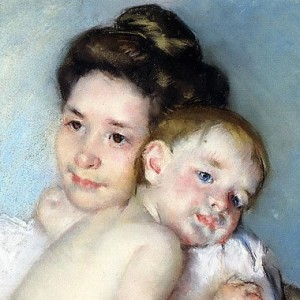
Tuesday Jan 21, 2020
"The Man Who Wrote Roe v. Wade" with Sue Ellen Browder
Tuesday Jan 21, 2020
Tuesday Jan 21, 2020
Soon after joining the U.S. Supreme Court in 1970, Associate Justice Harry Blackmun received an unwelcome surprise. Chief Justice Warren Burger put him in charge of writing the majority opinion in Roe v. Wade the ruling legalizing abortion across the United States.
Prior to writing that opinion, Blackmun thought little about abortion. But the opinion he wrote plus the enormous criticism the opinion and he personally received turned Blackmun into a strident exponent of abortion insisting that a woman’s right to choose to abort her child is a fundamental right.
Sue Ellen Browder majored in journalism and ended up working for Cosmopolitan magazine. She tells her story in her most recent book from Ignatius Press, Subverted: How I Helped the Sexual Revolution Hijack the Women’s Movement. The research she did for that book also yielded the story of Harry Blackmun and Roe.
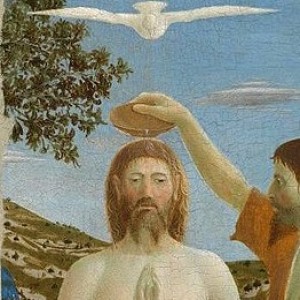
Tuesday Jan 14, 2020
Blessings the Waters, Living with Christ with Prof. Kyle Washut
Tuesday Jan 14, 2020
Tuesday Jan 14, 2020
All of Lander including our Wyoming Catholic College Students love Sinks Canyon. The natural beauty is breathtaking and on any given day regardless of the season, you can meet people hiking, rock climbing, fishing, camping, birding, and mountain biking. Next week, however, you’ll be able to see another unexpected activity: processing, worshipping, and the blessing of the waters.
The Blessing of the Water is a part of the Eastern Christian celebration of Theophany, the Feast of Christ’s baptism. In addition, this feast opens for us a new and larger understanding of time—specifically liturgical time and the liturgical calendar.
Wyoming Catholic College Professor Kyle Washut and reflected on these things for some time and is our guest on this edition of The After Dinner Scholar.
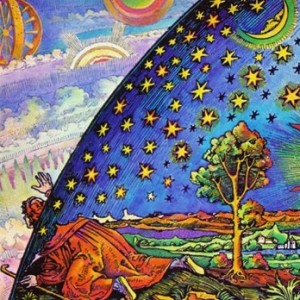
Tuesday Jan 07, 2020
Time: Thick, Deep, High with Dr. Jeremy Holmes
Tuesday Jan 07, 2020
Tuesday Jan 07, 2020
We celebrated Epiphany last Sunday. We will celebrate the Baptism of Jesus next Sunday then the following Monday we begin “Ordinary Time.” There’s something going on here—actually many things going on here—that cannot be summed up with Google Calendar and a wristwatch.
Google Calendar and wristwatch time is what philosopher Charles Taylor calls “secular time”: It’s 10 AM. I have a meeting at two this afternoon. The corporate quarter ends on January 30. The year is 2020.
But is that all there is to time? Is it merely an empty expanse of moments that we fill or is there—as Taylor suggests—something more to time, something that, as he puts it, gathers and reorders secular time?
Dr. Jeremy Holmes has thought a great deal about the nature of time and is our guest this week on The After Dinner Scholar.
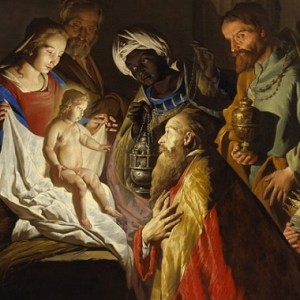
Tuesday Dec 31, 2019
The Magi in the Poetry of Yeats and Eliot with Dr. Glenn Arbery
Tuesday Dec 31, 2019
Tuesday Dec 31, 2019
‘A cold coming we had of it,
Just the worst time of the year
For a journey, and such a long journey:
The ways deep and the weather sharp,
The very dead of winter.’
Those lines are the beginning of T. S. Eliot’s poem “Journey of the Magi,” an imagined first-person reflection by one of the Magi on the long trip to Bethlehem.
St. Matthew’s Gospel makes it clear that these were the first Gentiles, the first non-Jews to worship Christ. And they, their journey, and their gifts—gold for a king, frankincense for a God, and myrrh with its aroma of death—have attracted a good deal of interest and imagination over the centuries.
As we prepare for the Feast of Epiphany, Wyoming Catholic College president Dr. Glenn Arbery discusses Eliot’s poem (written in 1927) as well as one written by William Butler Yeats some years earlier (in 1916).
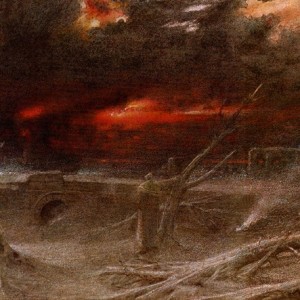
Tuesday Dec 24, 2019
The Abolition of Man, Part Three: "The Abolition of Man" with Dr. Jason Baxter
Tuesday Dec 24, 2019
Tuesday Dec 24, 2019
In his book, The Abolition of Man, C. S. Lewis imagined a reader saying, “You say we shall have no values at all if we step outside the Tao. Very well: we shall probably find that we can get on quite comfortably without them. Let us regard all ideas of what we ought to do simply as an interesting psychological survival: let us step right out of all that and start doing what we like. Let us decide for ourselves what man is to be and make him into that: not on any ground of imagined value, but because we want him to be such. Having mastered our environment, let us now master ourselves and choose our own destiny.”
That quote is at the end of the second chapter of The Abolition of Man our Wyoming Catholic College book of the year. In that chapter Lewis argued that the Tao or Natural Law is essential for any morality, any sense of “ought to.” But what if we throw away morality? What if we allow no ought, no permanent values, nothing but what we as humans choose for ourselves in any given age?
That question leads to the third and final part of the book and the final abolition of man. In this, our third podcast about The Abolition of Man, our guest is Wyoming Catholic College’s Academic Dean, Dr. Jason Baxter.
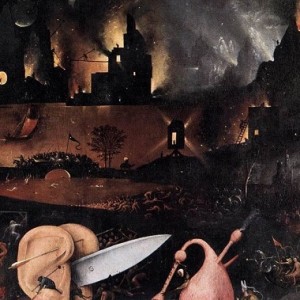
Tuesday Dec 17, 2019
The Abolition of Man, Part Two: "The Tao" with Joseph Pearce
Tuesday Dec 17, 2019
Tuesday Dec 17, 2019
In his book The Abolition of Man Lewis argued that the practical result of making all moral judgments subjective—“I feel” rather than “I think”—“must be the destruction of the society which accepts it.”
Lewis saw in 1943—and we, seventy-five years later, certainly see—the ravages of such subjectivity. And that’s one of the reasons we’ve chosen The Abolition of Man as our Wyoming Catholic College book of the year.
But there’s a catch, wrote Lewis. Radical subjectivity while easy to preach is for the most part impossible. When people claim to reject the objective, what Lewis called the Tao—Natural Law or traditional morality—they are nonetheless forced to operate by smuggling shreds of the Tao back into their thinking.
To help us to understand the second lecture in The Abolition of Man, a lecture Lewis entitled “The Way,” we’re joined by author and scholar Joseph Pearce. Mr. Pearce is Director of Book Publishing at the Augustine Institute, editor of the St. Austin Review, editor of Faith & Culture, and series editor of the Ignatius Critical Editions. In addition he is a member of Wyoming Catholic College’s Catholic Scholars Advisory Board.
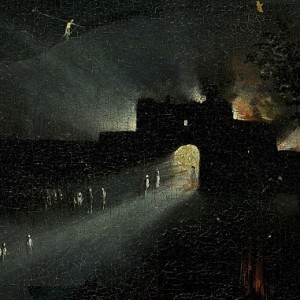
Tuesday Dec 10, 2019
The Abolition of Man, Part One: "Men Without Chests" with Dr. Kent Lasnoski
Tuesday Dec 10, 2019
Tuesday Dec 10, 2019
At some point in the early 1940s, scholar and author C. S. Lewis received a review copy of a textbook for “boys and girls in the upper forms of school,” that is, high schoolers. And while he was grateful to the authors for sending the book, “At the same time,” he wrote, “I shall have nothing good to say of them.”
Lewis tells the story of the textbook in the first of three lectures he delivered in 1943 and then published as the book The Abolition of Man. Now seventy-fifth anniversary, Wyoming Catholic College has chosen The Abolition of Man as our book of the year. This is the first in a series of three podcasts about the book.
This week we will consider the first lecture that Lewis gave the provocative title, “Men Without Chests.” In it he focused on the radical subjectivity regarding morality that he saw all around him and the enormous damage it does and would continue to do to the human person.
To tell us about “Men Without Chests,” our guest this week is Wyoming Catholic College moral theologian, Dr. Kent Lasnoski.
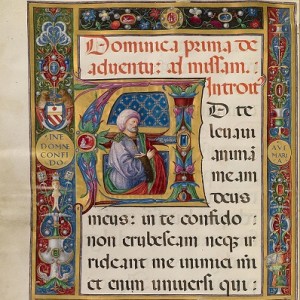
Tuesday Dec 03, 2019
Advent: Worship, Wonder, and Waiting with Fr. Paul Ward
Tuesday Dec 03, 2019
Tuesday Dec 03, 2019
“The coming of God’s Son to earth,” says the Catechism of the Catholic Church (522), “is an event of such immensity that God willed to prepare for it over centuries. He makes everything converge on Christ: all the rituals and sacrifices, figures and symbols of the 'First Covenant'. He announces him through the mouths of the prophets who succeeded one another in Israel. Moreover, he awakens in the hearts of the pagans a dim expectation of this coming.”
As the world around us accelerates into the Christmas holiday season immediately after Thanksgiving—Santa figuring prominently at the end of the Macy’s Thanksgiving Day Parade in New York City—we Christians wait. And waiting is precisely the theme of Advent, the four weeks preceding Christmas Day and the twelve days of the Christmas season.
As we move into Advent, Fr. Paul Ward, one of our two chaplains at Wyoming Catholic College, answers some questions about Advent and preparing for Christmas.
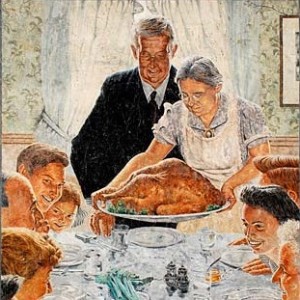
Tuesday Nov 26, 2019
Thanksgiving in Literature and Life with Dr. Glenn Arbery
Tuesday Nov 26, 2019
Tuesday Nov 26, 2019
St. Paul wrote to the Christians in Ephesus, “always and for everything giving thanks in the name of our Lord Jesus Christ to God the Father.” And it is, you know, more of a commandment than a suggestion. As Catholics giving thanks is a daily obligation. “No duty is more urgent,” said St. Ambrose, “than that of returning thanks.” The Holy Mass itself is the Eucharist, a word taken from the Greek word εὐχαριστία, thanksgiving.
Having said that about daily thanks, it is good and wise to set aside specific days or seasons to give thanks. The blessings we enjoy day-to-day as Americans are unprecedented in history. And yet so often, rather than reflecting gratitude back to God, we quietly think, “So what have you done for me lately?”
This week of Thanksgiving, Wyoming Catholic College President, Dr. Glenn Arbery reflects a bit about gratitude in the spiritual life, the life of Wyoming Catholic College, and in literature.
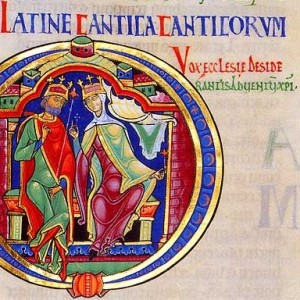
Tuesday Nov 19, 2019
Lovers in Latin: Reading Canticum Canticorum with Dr. Michael Bolin
Tuesday Nov 19, 2019
Tuesday Nov 19, 2019
“Adiuro vos, filiae Ierusalem, per capreas cervasque camporum,
ne suscitetis neque evigilare faciatis dilectam, quoadusque ipsa velit.”
The quote is from the Latin text of the Song of Songs in the Old Testament. “I adjure you, O daughters of Jerusalem, by the gazelles or the hinds of the field, that you stir not up nor awaken love until it please.” (Song 2:7)
That biblical book in Latin is the subject of one of four Latin reading groups here at Wyoming Catholic. Juniors and seniors hone the Latin skills they learned as freshmen and sophomores. The best way to retain and grow language skills is, of course, to use them.
The group working way through Canticum Canticorum ably led by Dr. Michael Bolin, our guest for this After Dinner Scholar.

